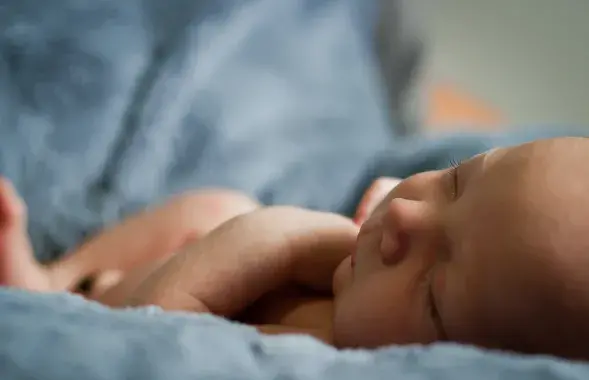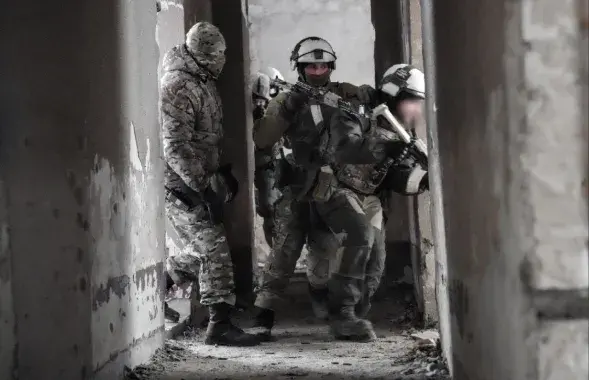Weightlifter complained about critical blood pressure 2 days before death
Relatives of Zhenya Shramko are convinced that neither the coaches, nor the doctors of the national team took necessary measures to render him medical aid.
The tragedy in the Olympic complex "Staiki", when 19-year-old weightlifter Zhenya Shramko died unexpectedly, happened about a month ago. However, the expanded forensic expertise which is supposed to learn the reason for his death hasn't been completed yet.
Still, close relatives and friends of Zhenya Shramko tell that he felt bad several days before the disaster, and had to address to the medical point. However, the "Staiki" doctor only prescribed him some pills.
Most likely, Zhenya Shramko died at night on Friday, February 22. When someone entered the room, he was lying facedown on the pillow, dead. The reason for death - insufficience of the heart, probably caused by excess loads and fatigue.
In the morning on Wednesday, February 21, Zhenya sent a message to his friend in the social networks, complaining about critically high blood pressure - 170 (!!!) to 100.

"Zhenya came to the doctor on Wednesday and complained about the pain in the back. She made an X-ray and said everything was okay, - the mother of the deceased weightlifter Natallya Alyaksandrauna quotes one of her last telephone conversations with her son. She agreed to talk to us although it is still very hard for her. - It turned out that the doctor didn't record a cardiogram, and paid no attention to the blood pressure. The pain in the back was obviously caused by some heart problems, as it often happens. The doctor gave him a handful of pills, Zhenuya said. After that, he slept since 11 a.m. till 7 p.m. We don't know what pills she gave him. Already at night, most likely, Zhenya passed away..."
Euroradio: Did your son have any health problems?
Natallya Alyaksandrauna: "No, never! He only had pains in the knees when he was a teenager. I took him to a private clinic and we fixed that. My son had the last expanded medical examination in December and everything was in order. He was a very strong man, a fan or work-outs, totally devoted to big sports. He could lift a bigger weight than members of the national team. He didn't show his best result at the last championship on purpose. He was sure he would win the Championship of Belarus and go to the European Championship. The content was coming and the results were getting better. As for the health. My son studied at the Academy of Governance ("under the specialty "Informational resources management" - Euroradio), but he first applied for entry to the Interior Ministry's Academy. He had an expanded medical examination then, and his health condition was perfect - he only had a small problem with a tooth. Zhenya was afraid of telling me about the high blood pressure on Wednesday - I would have taken him home from "Staiki" straightaway. I sent a strong and healthy son to the Olympic complex, where the sportive elite of Belarus train, as they say. They sent him back in a coffin."

Euroradio: Olympic Champion Aramnau once told that the young weightlifters "break down" in Staiki, some athletes become "raw material". When Zhenya felt bad, no one of the coaches worried, no one came to check how he was, although he spent more than 24 hours in his room. Did anyone apologize to you?
Natallya Alyaksandrauna: "Coaches from "Spartak", where Zhenya trained for his whole life, came to the funeral banquet. I don't remember anyone else. I know that young Minsk weightlifters couldn't get into the national team for a long time, although they were good enough. I think this is where the careless attitude to Minsk athletes starts. I'll tell you more - I heard they were going to start a criminal case and announce Vyachaslau Lyashko - Zhenya's personal coach - guilty of everything. On the day when my son felt bad, his coach could not be with him all the time as he has other trainees in Minsk. They fed my son in Staiki for Br 70 K per day. Lyashko asked to give his food to Zhenya. He was like a father to him. Zhenya worked with him for nearly 10 years and never had any health issues. Lyashko would never do anything bad to my son. When Zhenya died, the coach cried, he got thinner, it was a personal tragedy for him. However, the practice shows that they can accuse someone while the guilty will continue working".


















